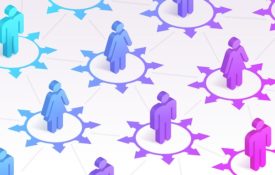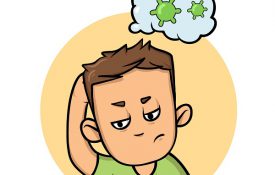-
Express Gratitude – Not Because You Will Benefit From It, But Others Might
APS Member/Author: Jennifer Cheavens The world is currently in the midst of a pandemic where the most useful thing many of us can do is stay at home and keep away from others. Schools, restaurants, office buildings and movie theaters are closed. Many people are feeling disoriented, disconnected and scared. At this time of soaring infection rates, shortages of medical supplies and economic downturns, there are also examples of people looking for ways to express their gratitude to those on the front lines of fighting the epidemic. In many European countries, for example, people are expressing gratitude for the work of the medical staff by clapping from their balconies.
-

APS Backgrounder Series: Psychological Science and COVID-19: Social Impact on Adults
Expert commentary from Chris Segrin, whose research focuses on social skills, relationship development and satisfaction. [April 2, 2020] Visit Page
-

New Research From Clinical Psychological Science
A sample of research on the use of health-related apps and cyberchondria, different judgments during mental health treatments, social anxiety disorder and social interactions, the impact of mental disorders on personality development during adolescence, and reduction of intrusive memories after trauma exposure. Visit Page
-
How Not to Tank Your Relationship in Quarantine
Humans have evolved with a drive to share life with a partner—just not all day long. Our hunter-gatherer ancestors on the savanna formed pair-bonds, but they parted in the morning to go about their separate tasks. So did our ancestors on the farm. For hundreds of thousands of years, even the most devoted couples have been uttering some version of that basic romantic principle: “I married you for better or for worse, but not for lunch.” So what happens now that spouses are staying home all day, and many unmarried couples suddenly find themselves quarantined together?
-

APS Backgrounder Series: Psychological Science and COVID-19: Social Impact on Children
Expert commentary from Vanessa LoBue on emotional development and the effect of emotion and experience on perception and learning. [April 1, 2020] Visit Page
-
In Negotiations, Givers Are Smarter Than Takers
APS Member/Author: Adam Grant When the pie seems fixed, it’s common to panic and treat resources as scarce. In crisis, we often do whatever it takes to protect ourselves. That’s especially clear today: In the past few weeks, we’ve seen hoarders collect thousands of bottles of hand sanitizer, and spreaders ignore warnings to maintain physical distance to avoid infecting vulnerable groups. We’ve watched policymakers withhold emergency funds. “It’s give and take, but it’s got to be mostly take,” President Trump said in 2015, summing up his negotiation philosophy. “You got to mostly take.” That was the art of the deal: Be a taker.

